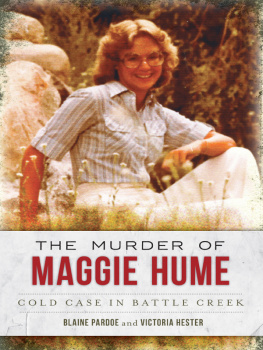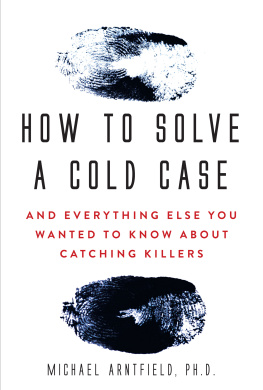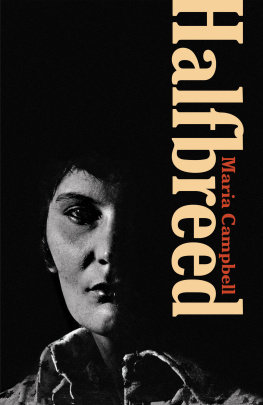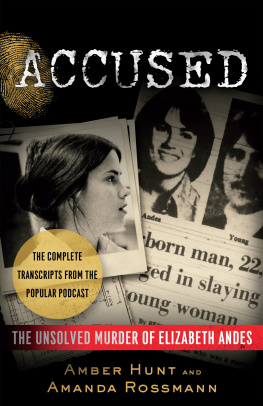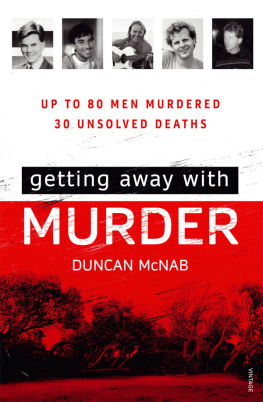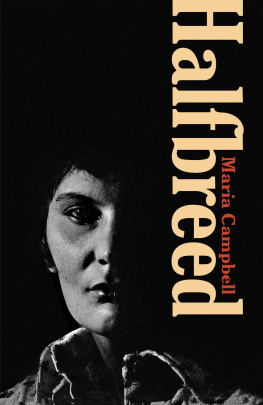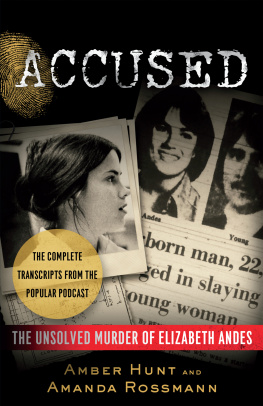Advance Praise for Cold Case North
Cold Case North is an enthralling search for intimate answers and broader social accountability. Essential reading. David Chariandy , author of Ive Been Meaning to Tell You
Like too many cases involving missing and murdered Indigenous people, authorities failed to ensure that Brady and Halketts deaths were properly investigated. This book helps get to the bottom of the fate of these two men and demonstrates why investigators should never dismiss the knowledge of Indigenous Peoples. Darren Pr fontaine , author of Gabriel Dumont
Cold Case North is part true crime thriller, part gripping mystery about the disappearance of Mtis legend James Brady and Absolom Halkett in northern Saskatchewan. It is also about Indigenous knowledge, investigative incompetence, and the stuff of legend. Paul Seesequasis , author of Blanket Toss Under Midnight Sun
A fascinating search for the truth, Cold Case North unravels the layers of a decades old mystery. It is about how communities hold knowledge for generations, and how missing loved ones are never forgotten. Katherena Vermette , author of River Woman and The Break
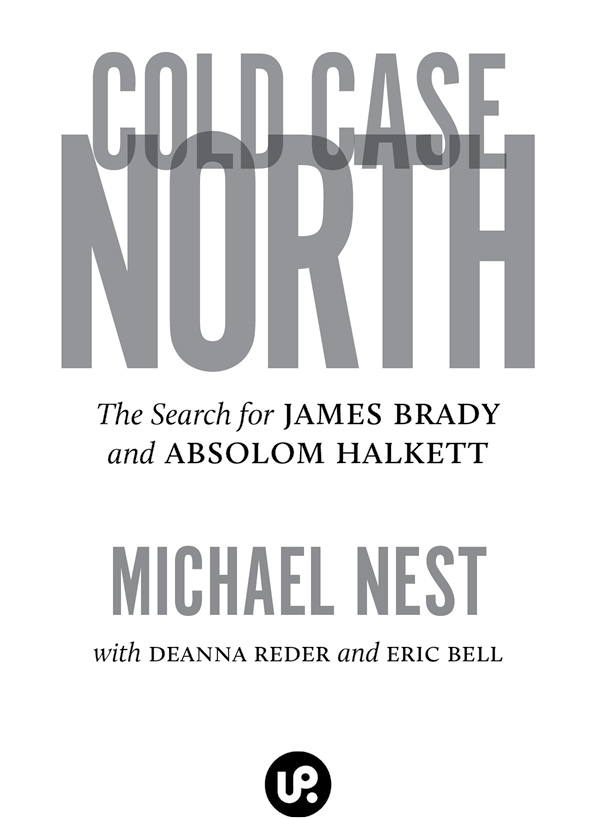
2020 The Authors
All rights reserved. No part of this work covered by the copyrights hereon may be reproduced or used in any form or by any means graphic, electronic, or mechanical without the prior written permission of the publisher. Any request for photocopying, recording, taping or placement in information storage and retrieval systems of any sort shall be directed in writing to Access Copyright.
Cover and text design: Duncan Campbell, University of Regina Press Copy editor: Dallas Harrison Proofreader: Rachel Taylor Indexer: Siusan Moffat Cover art: Lake Island by Chad/Adobe Stock.
Library and Archives Canada Cataloguing in Publication
Title: Cold case north : the search for James Brady and Absolom Halkett / Michael Nest with Deanna Reder and Eric Bell.
Names: Nest, Michael Wallace, author. | Reder, Deanna, 1963- author. | Bell, Eric (Park warden), author.
Description: Includes bibliographical references and index.
Identifiers: Canadiana (print) 20200276751 | Canadiana (ebook) 20200276832 | ISBN 9780889777491 (softcover) | ISBN 9780889777545 (hardcover) | ISBN 9780889777507 ( PDF ) | ISBN 9780889777521 ( EPUB )
Subjects : LCSH : Brady, Jim, 1908-1967. | LCSH : Halkett, Absolom, -1967. | LCSH : Missing persons InvestigationSaskatchewanCase studies. | LCSH : Missing personsSaskatchewanCase studies. | LCSH : Cold cases (Criminal investigation)SaskatchewanCase studies.
Classification: LCC HV6762.C2 N47 2020 | DDC 363.2/336097124 dc23
University of Regina Press, University of Regina Regina, Saskatchewan, Canada, s4s 0a2 tel: (306) 585-4758 fax: (306) 585-4699 web: www.uofrpress.ca
We acknowledge the support of the Canada Council for the Arts for our publishing program. We acknowledge the financial support of the Government of Canada. / Nous reconnaissons lappui financier du gouvernement du Canada. This publication was made possible with support from Creative Saskatchewans Book Publishing Production Grant Program.

For Frank Tomkins
(19272019)
indians
indians go missing
they tell the family
indians go missing
everyday
blue suits shrug
no sense looking
they said
hell turn up when
he gets bored
or broke
indians drown
the family finds out
happens everyday
this land floods
with dead indians
this river swells
freezes
breaks open
cold arms of ice
welcomes indians
indians get drunk
dont we know it
do stupid things
like being young
like going home alone
like walking across
a frozen river
not quite frozen
and not making it
to the other side.
Katherena Vermette
Katherena Vermette, indians, in North End Love Songs (Winnipeg: Muses Company, 2012), 90. Reprinted with permission from Katherena Vermette.
Contents
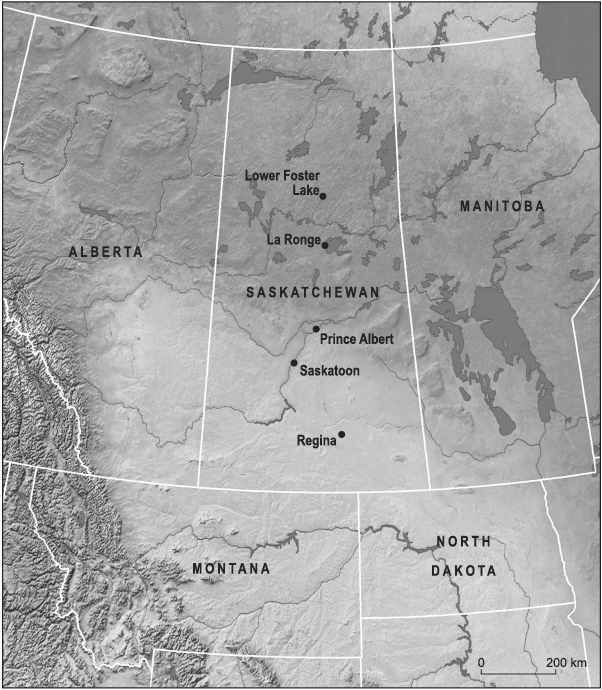
Saskatchewan in relation to Canada with detail of La Ronge and Lower Foster Lake Map by Weldon Hiebert.
1 A Quintessential Canadian Story
I do not remember June 1967 when Jim Brady and Abbie Halkett disappeared in the bush in northern Saskatchewan without a trace. I would have been too young. But I do remember my mother telling me about this mystery, how two local men living in her hometown, La Ronge, were dropped off by plane at a lake an hour north so that they could go prospecting. When their boss came by a week later to check on them, he found that their camp had been set up, their beds had been slept in, and cups half full of tea sat next to their extinguished campfire. Jim and Abbie were nowhere to be found.
The story of their disappearance was one of many that my mother told me and my brother. We lived away, and these stories connected us to our Cree and Mtis relatives and life in northern Saskatchewan. Even as kids we would sit around drinking tea with Mom as she related this world to us through words, sometimes news that shed heard from one of our nine aunties and uncles or dozens of cousins, sometimes her memories of family members and friends, in La Ronge and beyond.
Since our dad was in the army and we lived in a variety of military bases across western Canada, I knew La Ronge only in the summer, when my parents would use holidays to return home to see family members. Even so, I was amazed that there was any place north of this small town, which to my childs imagination after countless long drives over gravel roads to get there seemed to be as far north as anyone could go. At some point as a teenager, I took a look at a world map and was shocked to see La Ronge listed, as though it were any other world city, positioned just halfway up the province, almost smack dab in the middle of Saskatchewan. Yet I knew it as a place unlike any other, with only a few hundred residents, many of them my cousins or families of people that my mother grew up with.
Whenever Mom told me about the disappearance, she included a different detail, as when she told me that oddly around the time that Jim and Abbie disappeared it had been snowingnot impossible in northern Saskatchewan in June. There were no footprints from Jim and Abbie recording that they had left the camp and no footprints of anyone, human or animal, arriving at it. About a week after they were dropped off, their boss was scheduled to check in on them and replenish their supplies; he, along with the pilot who flew him in, were the first to make tracks in the snow. I always imagined, though it could not be true, that the boss reached out to the cups left by the campfire and felt that the tea was still warm.
Mom told me that the police had decided that Jim and Abbie had gotten lost in the bush, a point that made my mother sneer. Its not impossible to become disoriented anywhere, and the terrain where Jim and Abbie made camp was difficult. But they were men who had grown up on the land and knew how to read it. Even alone, each man had a lifetime of skills that would have allowed him to make his own way back to their campsite; with the two working together, it would have been impossible to get lost for long.
My mother didnt mention that both men had high public profiles. She didnt mention that James Brady was one of the Famous Five who had helped to establish the Mtis Association of Alberta. She never mentioned, and likely did not know, two of the five, Felix Callihoo and Joseph Dion. Mom did know a fourth member, Malcolm Norris, though more as Jims old friend than as an activist. She referred to him as Old Mac Norris to distinguish him from his son with the same name. And she knew the fifth member, Pete Tomkins Jr., as Mr. Tomkins, a close family friend because Mrs. Tomkins was a friend of my kohkum and their son Frank married my Auntie Irene. To Mom, Jim Brady was the man who lived in a little cabin in the middle of town, right next to Uncle George, Auntie Jane, and my cousins.
Next page



